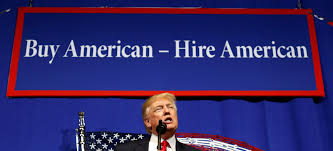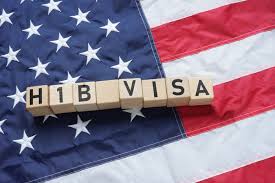
The persistent narrative that President Trump prioritizes his “billionaire cronies” over everyday Americans often paints him as a captive of elite interests, particularly in tech and finance. Yet, his recent H-1B visa reforms—culminating in the September 19, 2025, proclamation imposing a $100,000 annual fee on new applications—directly contradict this by targeting the very practices that benefit those cronies at the expense of U.S. workers.
This isn’t favoritism; it’s a calculated strike against corporate exploitation, forcing Big Tech to invest in domestic talent rather than cheap foreign labor. Below, I break down how these policies dismantle the cronyism claim while embodying an “America First” ethos.
1. Direct Backlash from Billionaire Donors Proves Independence
- The Cronyism Myth: Critics argue Trump bends policies to appease donors like Elon Musk (Tesla/SpaceX), Jeff Bezos (Amazon), Mark Zuckerberg (Meta), and Sundar Pichai (Google/Alphabet), who collectively donated millions to his campaigns and rely on H-1B visas for low-cost staffing. Amazon alone secured over 14,000 H-1B approvals in FY2025, followed by Microsoft and Meta with 5,000+ each—enabling wage suppression and offshoring that displaces Americans.
- The Disproof: The $100,000 fee (up from $215) applies only to new visas, not renewals, but it has triggered immediate panic among these firms, with internal memos urging H-1B holders to rush back to the U.S. before enforcement. 3 sources Commerce Secretary Howard Lutnick bluntly stated: “Train Americans. Stop bringing in people to take our jobs.” Even allies like Musk, who once defended H-1B as essential for “top talent,” faced public rifts, with the policy highlighting how it fails to woo these billionaires despite their overtures.2 sources Tech stocks dipped (e.g., Infosys down 5% on announcement), and firms like Microsoft issued travel alerts, exposing their vulnerability—not Trump’s favoritism. If Trump were beholden to cronies, he’d expand the program, not slap it with fees that could cost Amazon $1.4 billion annually for new hires.

2. Targeting Abuse to Protect American Jobs and Wages
- Exploitation Exposed: The White House proclamation explicitly calls out H-1B as “deliberately exploited to replace, rather than supplement, American workers with lower-paid, lower-skilled labor,” citing a 36% wage discount for entry-level roles and IT outsourcing firms laying off U.S. staff to train H-1B replacements. 2 sources Foreign STEM workers grew from 17.7% of the workforce in 2000 to 26.1% in 2019, suppressing U.S. computer science wages by 2.6–5.1% and jobs by 6.1–10.8%.
- America First in Action: By prioritizing high-wage hires (e.g., $150,000+ roles) and curbing “spamming” the lottery, the reforms ensure visas go to truly additive talent, not mass importation for routine tasks. 2 sources This echoes the 2017 “Buy American, Hire American” order, which raised denial rates to 24% and boosted U.S. STEM wages by 5–7%.
2 sources Post-reform, American computer science unemployment fell below 5%, as firms like Disney faced lawsuits for H-1B displacements. The fee discourages below-median-wage petitions (60% of approvals), forcing companies to upskill Americans or pay market rates—directly benefiting the working class Trump champions.
3. Long-Term Safeguards for U.S. Competitiveness and Security
- Beyond Cronies: While billionaires warn of “chaos” and offshoring (e.g., to India or Canada), experts like Heritage Foundation’s Lora Ries praise the fee as a “good start” for preventing wage suppression and prioritizing Americans. It addresses national security by reversing H-1B-driven STEM enrollment drops (15% in key fields), reclaiming ground from rivals like China.
- Proven America First: Unlike pro-business expansions under prior administrations, Trump’s rules could preserve 50,000+ U.S. jobs yearly by making exploitation unprofitable, per NFAP estimates. H-1B defense, forcing reforms that align with “America First” over elite perks.
In essence, these H-1B changes disprove cronyism by punishing the billionaires’ playbook—cheap labor floods—while proving Trump’s commitment to elevating American workers through higher wages, job security, and fair competition. It’s not anti-immigrant or anti-talent; it’s anti-abuse, putting U.S. families first in a system rigged for the top 1%.
If this holds against inevitable lawsuits, it could redefine skilled immigration for the better.



